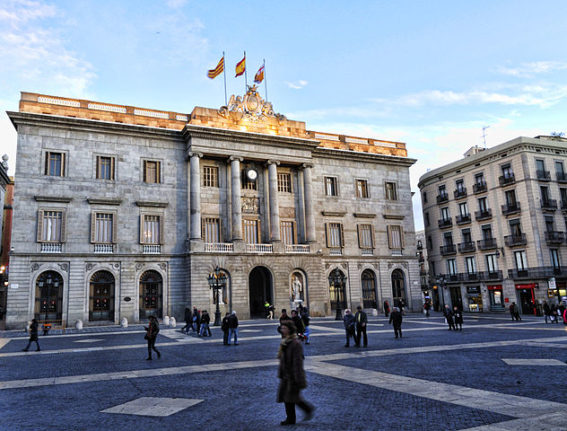Empadronamiento is a registration process which adds you to the census of your local area. The associated certificate – el padrón – provides you with official proof of your address.
For your local town hall, or ayuntamiento in Spanish, it serves the purpose of knowing exactly how many people are living in the area, which in turn helps them receive adequate funding for public services.
But your padrón certificate is very useful for you too, as many official processes in Spain require you to prove your address.
For example, you may need it to get your driving licence or to register as an autónomo (self-employed).
READ ALSO: 16 things you should know about Spain’s padrón town hall registration.
Technically, you should apply for your padrón within the first three months of moving to Spain, or if you move home to a different area within Spain.
You may also need to reapply for it if you need it for another official process and it is older than three months.
If you’ve already been living in Spain, you’ll know that getting documents such as your padrón can take longer than you probably hoped for. This can be very frustrating, particularly having to first get a prior appointment (cita previa) from your town hall, as this ends up stringing out the process.
Being able to apply online instead of in person could save you a lot of time and should make the whole process easier, but is it possible?
Can you apply for the padrón online in Spain?
The short answer is yes, it is often possible to apply for your padrón certificate online. However, it may depend on the area you live in.
For example, if you live in Barcelona or Madrid, you are able to apply for your certificate for the first time online or renew it online too.
Those in Barcelona should visit the relevant page of the Ajuntament website here where you can fill out and submit the online form.
Those in Madrid can fill out and apply for the form here, while in Valencia, you can apply via the following link here.
You will simply need to follow all the steps, filling out all your personal details as you go and then submitting it at the end.
Remember, you will also need to have digital copies of your ID documents such as passport, TIE or other residency cards, the deeds if you own the property where you live or your rental contract if you are renting.
You may need a digital certificate or Cl@ve to be able to officially identify yourself during online processes, but this may not be necessary for all town halls, it will depend on what type of system they have set up.
For example, if you live in Granada and have your digital certificate, you can apply online, but if you don’t, then you will need to apply for it in person.
In Madrid, those who don’t have a digital certificate can apply for the padrón via e-mail.
In some other areas, you may be able to apply to renew your certificate online, but if you’re applying for the first time then you will still need to go in person.
As is so often the case with official matters in Spain, there is no standard procedure which applies across the board for getting a padrón online.
You may ask one civil servant who tells you it is possible, then turn round and quiz another funcionario, who completely rules it out. Perhaps you’re better off first Googling “solicitar padrón a través de internet” (apply for padron online), plus the name of your town to see if it is an option.
‘Spain is different’, Spaniards often say in English when being critical about their country. When it comes to applying for a padrón online, Spain and its 8,131 town halls most certainly are different.
READ ALSO:



 Please whitelist us to continue reading.
Please whitelist us to continue reading.
Member comments